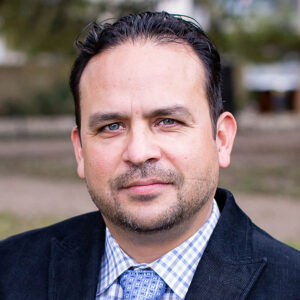
The Plagiarized Voice
For many of my students, voicing themselves is not the issue. Mostly, they are terrified of revealing their authentic voice. Although I empathize with them, my role as teacher obligates me to keep them faithful to its discovery, even if their authentic voice is not a fixed thing. Hence, I approach this pastoral work with the understanding that their respective voices are dynamic and ever-changing, not along a linear trajectory, but within the messy cycles of their precious lives. In this way, my role as teacher is to inspire them to discover a self-authenticated speech power that when activated they can proudly hear and see themselves.
And yet despite my good efforts, I inevitably have students who have despairingly succumbed to the notion that their voice is not worth hearing. Achingly, such devaluing of self is often the result of a combination of adverse and even abusive social, political, and economic forces that they have encountered over the course of their lives. For other students, the issue is not worthlessness but often anxiety in hearing those facets of their voices that expose their privilege and cultural bubble. To cope with either one of these voice-silencing impulses, students usually opt for a masking scheme that I call, the plagiarized voice. Here, the goal is to disguise their authentic self, with all its flaws, foibles, and flavors, by appropriating other people’s authentic voice. Beyond simply quoting word for word from another author without giving proper credit, which is a dishonest academic practice resulting in dismissal, students assemble a composite voice using a default collection of words and phrases. There is also the habitual deployment of go-to concepts and argumentation that are indiscriminately plugged into their writing. The entire production points clearly to the concealment of their authentic voice.
Another giveaway to this masking tactic is when students carelessly employ—whether in their writing assignments or class participation—trendy keywords, particularly the kind that they think would trigger a better grade from me. Knowing that my scholarly voice reveals an ethical commitment to the themes of “postcoloniality,” “migration,” “trauma,” “empire,” “violence,” “colonialism,” and “marginality,” students surmise that by sprinkling their writing with these words enough times a higher grade will magically appear. It is not that these themes are off-limits in students’ writing, for I teach that they are critical to understanding the cultural, social, and political instincts of the writers of the Hebrew Bible. Furthermore, these inscribed instincts belong to the sacred otherness of the biblical text, and hence we should resist colonizing their language and cultural points of view. At issue here, however, is when these themes and concepts do not cross-pollinate with a student’s authentic self in ways that show their close reading, creativity, and courage. Indeed, the lived experience with imperial violence that permeates much of the Hebrew Bible requires attentive and respectful listening, such that the felt pain behind the text is not diluted by sanitized scholarly jargon. If pain and suffering are common to all humans across time and space, then students should be able to hear themselves in the stories and poetry of the Hebrew Bible. Likewise, theorizing on ancient forms of colonization also requires a spectrum of diverse dialogue partners, some with expertise in literary analysis and others who write about imperial violence from first-hand experience. In my view, inviting a mixed range of reading partners (preferably in nonhierarchical fashion) is vital pedagogical practice that allows my students to fine-tune their authentic voice. In other words, the aim is not to harvest a new collection of catchy phrases but to hear oneself in relation to a rich variety of other voices. For example, when students encounter a rape scene in the biblical text—troublingly, there are many to choose from—how do they respond to the expert critics who gloss over this egregious form of violence? Or if students hear from authors who write about their first-hand experience with exile, does their testimony strike a chord in ways that could help students better exegete the biblical text?
Notably, teaching future pastors the Hebrew Bible at a Protestant seminary is in many ways about authentic voice, specifically the divine voice. It is this pursuit of authenticity that my students are expecting—and frankly pay—to receive. The divine voice is not something that can be reproduced through Generative AI, for the authenticity of God is revealed through the realms of faith. And in the end, they will be practicing this pursuit each time they take the pulpit. For it is here that their congregants gather, expecting to receive from them an authentic word from God. As a teacher, when I think of this sacred moment, liberating students from the plagiarized voice becomes even more urgent.
Leave a Reply